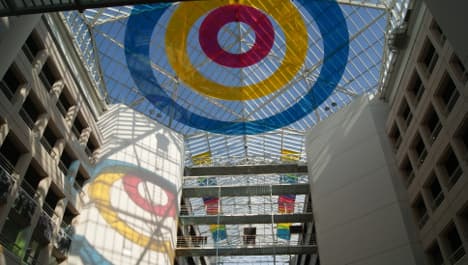Geneva uni geneticist in research fraud probe

A prominent medical journal said on Thursday it had retracted a research paper linking child abuse and bipolar disorder after a probe found that one of the authors had fabricated data.
The 2013 study co-authored by French national Alain Malafosse, the former head of Geneva University's psychiatry genetics unit, had reported a link between maltreatment in childhood and genetic changes associated with bipolar disorder in adulthood.
Malafosse fled to France earlier this year amid accusations that he embezzled 1.7 million Swiss francs (1.4 million euros, $1.8 million) in public research funds.
"An investigation carried out at the request of the Dean of the Faculty of Medicine of the University of Geneva has concluded that one of the authors (Alain Malafosse) fabricated methylation data," said the official retraction published by The British Journal of Psychiatry and emailed to AFP.
"A reanalysis of the DNA reveals no significant correlation between childhood trauma and methylation (a type of change) of the NR3C1 gene. The original conclusions therefore no longer hold true and we wish to retract the paper."
The paper had also been signed by six other authors, who the probe found had been unaware of the fraud, faculty dean Henri Bounameaux told Swiss public broadcaster RTS.
Malafosse told RTS the retraction was "justified" as the laboratory analysis had been "incorrect".
"I was responsible for this lab, so I am responsible," he said on Wednesday.
The university launched its probe in January, a month after filing fraud charges against Malafosse for allegedly diverting public research funds for personal gain. By then Malafosse had already left for France.
It is not the first time this year that the credibility of research journals has come under scrutiny.
In February, publisher of science journals Springer said it would scrap 16 papers from its archives after they were revealed to be computer-generated gibberish.
In the same month, a South Korean scientist had a suspended jail term upheld for having faked stem cell research findings 10 years earlier that raised hopes of treatments for diseases like cancer and diabetes.
Hwang Woo-Suk had claimed in a paper in the US journal Science to have created the world's first stem-cell line from a cloned human embryo, but an investigation found no such cells were ever produced.
Comments
See Also
The 2013 study co-authored by French national Alain Malafosse, the former head of Geneva University's psychiatry genetics unit, had reported a link between maltreatment in childhood and genetic changes associated with bipolar disorder in adulthood.
Malafosse fled to France earlier this year amid accusations that he embezzled 1.7 million Swiss francs (1.4 million euros, $1.8 million) in public research funds.
"An investigation carried out at the request of the Dean of the Faculty of Medicine of the University of Geneva has concluded that one of the authors (Alain Malafosse) fabricated methylation data," said the official retraction published by The British Journal of Psychiatry and emailed to AFP.
"A reanalysis of the DNA reveals no significant correlation between childhood trauma and methylation (a type of change) of the NR3C1 gene. The original conclusions therefore no longer hold true and we wish to retract the paper."
The paper had also been signed by six other authors, who the probe found had been unaware of the fraud, faculty dean Henri Bounameaux told Swiss public broadcaster RTS.
Malafosse told RTS the retraction was "justified" as the laboratory analysis had been "incorrect".
"I was responsible for this lab, so I am responsible," he said on Wednesday.
The university launched its probe in January, a month after filing fraud charges against Malafosse for allegedly diverting public research funds for personal gain. By then Malafosse had already left for France.
It is not the first time this year that the credibility of research journals has come under scrutiny.
In February, publisher of science journals Springer said it would scrap 16 papers from its archives after they were revealed to be computer-generated gibberish.
In the same month, a South Korean scientist had a suspended jail term upheld for having faked stem cell research findings 10 years earlier that raised hopes of treatments for diseases like cancer and diabetes.
Hwang Woo-Suk had claimed in a paper in the US journal Science to have created the world's first stem-cell line from a cloned human embryo, but an investigation found no such cells were ever produced.
Join the conversation in our comments section below. Share your own views and experience and if you have a question or suggestion for our journalists then email us at [email protected].
Please keep comments civil, constructive and on topic – and make sure to read our terms of use before getting involved.
Please log in here to leave a comment.